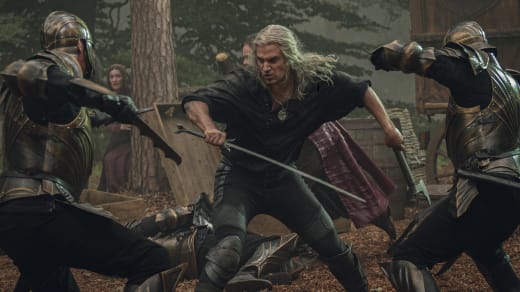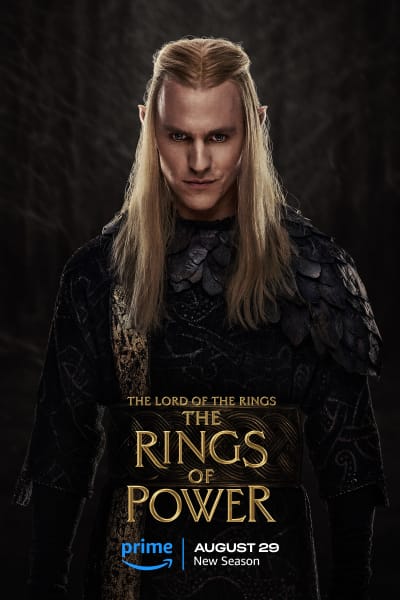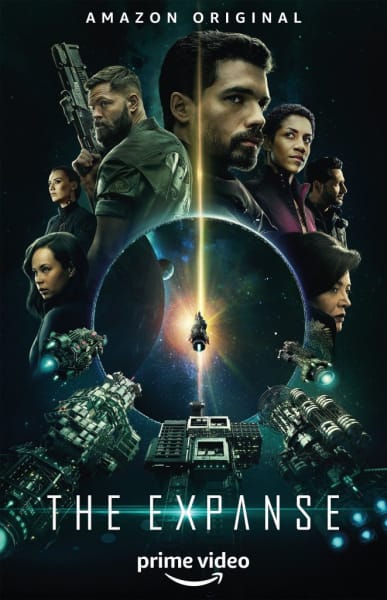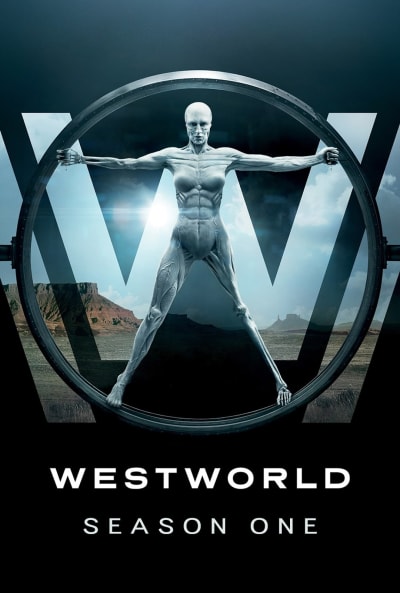Storytelling has been a facet of social behavior since the days of fingerpainting on dimly lit cavern walls.
Hopefully, the grunting, scratching cave audience didn’t bludgeon the artist to death with makeshift clubs when a bad story resulted.
Modern fans can get downright mean over aspects of their favorite series.
Sometimes, the showrunners acknowledge the outcry — sometimes, they don’t.
Netflix’s The Witcher and Amazon Prime’s Rings of Power are perfect examples of what happens when writers ignore the fans, with both seeing a drastic drop in viewership.
The Rings of Power ended the season with only a third of its original audience.
Then again, for every failure, there is a success story.
For the most part, Shogun stuck to the books and never had to face the wrath of the fans.
It doesn’t take much to reason the rest of the way through this balancing act, with millions of dollars often on the line.
The Rise of Fan Power
When soap operas hit the scene in the 1970s, modern-day TV storytelling began to take shape.
These shows have multiple plots that take place over several episodes.
Fans were less influential, and ratings, along with critic reviews, were the only indicators of a show’s success.
There was no such thing as going viral, what with only a mailbox and a rotary telephone to communicate with.
The Age of Nostalgia: Why Young Audiences Are Seeking Out Old TV
Then came the internet and social media, derailing the typified relationship between showrunners and fans.
Before, fans voted for their favorite shows by viewing them.
Now, a small departure from the source material is enough to burn down the internet, infecting the algorithms and ginning up enough animosity to generate major entertainment news headlines.
Sometimes, the showrunners and crew have responded with angst, feeding the beast and growing the moment’s chaos.
If the townsfolk are marching on Frankenstein’s creator, it’s best to avoid handing out additional pitchforks and torches.
However, there are instances where fan reactions have changed things for the better.
The Expanse was a dead horse, done and finished well before the creative vision behind it was through. As a Sci-Fi original, it was on the chopping block for cancelation.
The Blue Bloods Cancellation Is Still Infuriating: Will Fans Be Consoled by a Satisfying Conclusion?
Fortunately, the outrage was enough to capture the attention of Amazon’s top brass.
The Expanse finished its run on Prime, which came with a happy infusion of money from a studio that could afford it.
Similar scenarios played out with the Family Guy, Lucifer, Veronica Mars, and even the original Star Trek (it took a lot of letter writing, stamps, and runs through the post office).
Again, we see the formulation of a balancing act somewhere between the rage of disillusioned fans and the success stories of some of TV’s most popular franchises.
The Showrunner’s Dilemma
Creative integrity is the beating heart and soul of the storyteller.
So, how to balance creativity with fan appeasement? For starters, no one will ever appease all of the fans.
There will always be that boisterous bunch of names, followed by a random string of numbers, in various X (Twitter) feeds.
That doesn’t mean showrunners should eschew the fans altogether.
The darkest episode in X-Files history was “Home”, which was pulled after brutal fan reactions, though you can still watch it today if you purchase the show or catch it on a streaming platform.
Memorable TV Relationships That Were Worth The Wait
Roseanne redirected its focus after fan backlash over the sitcom leaned away from the Connor family and toward Steve Urkel.
Due to negative fan response, Wil Wheaton’s character, Wesley Crusher, was written out of Star Trek: TNG.
On the flip side, Game of Thrones and The Walking Dead both avoided capitulation and went on to complete their respective series’ as originally envisioned by the showrunners.
It’s well-known that narrative complexity, coherence, and complex characters make a show great.
Showrunners must balance their creative vision with fan response while not corrupting the former in favor of the latter.
Creative Storytelling in a Changing Landscape
The entertainment industry is marching headlong into the waiting arms of the reboot, remake, and adaptation.
Originalism is decreasing across the board. There are many reasons behind this, but suffice it to say, there’s no coming back until it’s played out.
There is a problem and an advantage with this.
The advantage is the built-in fan base. The problem is the built-in fan base. Many showrunners are learning this the hard way.
Some deviations from the source material, especially when translating books to film, are understandable, even if they cause the occasional grumble.
However, fans will not tolerate a wholesale abandonment of the source material.
This leaves the showrunners with a simple choice:
They can take enormous liberty with the material, deviating in favor of personal, creative inspiration, or bow to the whims of the fan base.
The choice is simple, while the balance is complicated.
A united fan base, wielding social media tools, can burn a project to the ground.
Westworld went from hero to zero thanks to the efforts to appease fans rather than retain the complex mystery of the first season.
Elsbeth Backlash: Has CBS’ Lighthearted Murder Mystery Lost Its Way Already?
Some showrunners, instead of listening to fans or embracing their own vision, actively attacked fans, even incorporating their ambivalence towards the fans into their shows.
The polar opposite approaches clearly do not work, especially with existing and highly popular source material.
The consequences of audience-driven storytelling are just as dire as that of ignoring the fan base altogether.
Preserving Balance and the Unpredictability of Stories
Yes, it’s a tall order. It’s not easy to fully embrace one’s creative imagination and balance it against lofty fan expectations.
It’s perfectly understandable to ignore that small segment of bots and trolls that will never be satisfied.
On the other hand, ignoring the entire fanbase is done at the peril of the showrunner’s sanity and project.
It’s enough to make one wish we could go back to the days of Lost and The Sopranos.
Fans love nothing more than a huge mystery, especially one that’s rife with multiple subplots and sensible cliffhangers.
Cliffhangers That Made Our Jaws Drop to The Floor
Showrunners who give the audience too much power risk taking the path of Westworld.
It’s much easier to create a masterpiece and lightly incorporate audience feedback.
These adaptations, however, are more difficult.
Showrunners tasked with adapting a popular IP should look to Shogun, Dune, and Outlander.
It wouldn’t hurt to study some of the classic adaptations, like Roots, Lonesome Dove, and even 1967’s The Forsyte Saga.
Peter Jackson’s original Lord of the Rings trilogy didn’t do so well because it was a carbon copy of the books.
It did well because it fully embraced Tolkien’s spirit, only making narrative changes where it made sense for the film.
These gems from yesterday contain valuable lessons; lessons showrunners would do well to learn and incorporate into their own sagas.
What’s your opinion? Should showrunners seek a happy medium, cast aside fan reactions, or wholly embrace them?
Share your thoughts and opinions in the comment section below.
Thomas Godwin is a staff writer for TV Fanatic. You can follow him on X















